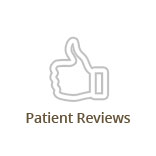
Why? Despite the evidence of a correlation between coffee drinking and reduce chance of cancer, there are still downsides to the regular java boost – enamel loss.
Coffee is a leading cause of enamel loss, ranking near the top of the list with other beverages such as tea and red wine. While the findings regarding cancer prevention are promising, Hogan argues that the enamel loss that would be caused by increased coffee consumption is not worth the risk when there are so many factors that still need to be considered with further research.
He believes that researchers need to truly eliminate other factors in their studies of coffee’s impact on cancer development – tobacco use, alcohol consumption levels, HPV virus diagnoses, the presence of fungal infections, etc. All of these factors are known causes of oral cancer and could skew the findings in the coffee studies.
If, for instance, a large percentage of non-coffee drinkers are drinking alcohol in large quantities or if they are more likely to be diagnosed with HPV than the coffee drinkers, the correlation between coffee and reduced cancer risk would be circumstantial.
Until those factors can be ruled out, Hogan suggests that patients limit their coffee consumption and be aware of the common signs of oral and throat cancer such as chronic sores, a lasting sore throat, difficulty chewing, or an unusual lump in the cheek.
To better understand Hogan’s view on the matter, continue reading the full article.
Photo by: Coffee time / Roger Price / CC BY 2.0









Leave a Reply
You must be logged in to post a comment.